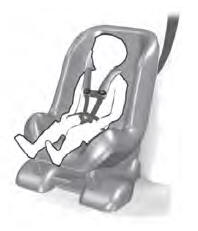Lincoln Aviator 2020-2026 Owners Manual / SYNC™ 3 / Electric Vehicle Information / Power Flow. Vehicle Operational States
Lincoln Aviator: Electric Vehicle Information / Power Flow. Vehicle Operational States
Power Flow
 The Power Flow information for
your plug-in hybrid vehicle is
available through the Home screen
or under Apps.
The Power Flow information for
your plug-in hybrid vehicle is
available through the Home screen
or under Apps.
Vehicle Operational States
Power will flow to or from the front and rear wheels depending on operational state and drive conditions.
- Idling: The vehicle is running and in park (P). The engine and, or the high voltage battery are on.
- Electric Driving: The vehicle is running and in drive (D) or neutral (N). The high voltage battery provides power to the wheels.
- Hybrid Driving: The vehicle is running and in drive (D) or neutral (N). The engine and the high voltage battery provide power to the wheels.
- Engine Driving: The vehicle is running and in drive (D) or neutral (N). The engine provides power to the wheels.
- Regenerative Braking: The vehicle is running in drive gear (D) and is slowing down. The regenerative braking system captures power and sends it back to the high voltage battery.
- Charging: The vehicle is plugged in and the high voltage battery is being charged.
 Engine On Due To
Engine On Due To
The following conditions help to explain why
the engine is on, and what you can do to
allow all electric operation.
Drive Power: The engine is on due to
accelerator pedal pressure or speed
control activation...
Other information:
Lincoln Aviator 2020-2026 Service Manual: Diagnosis and Testing - Suspension System
Preliminary Inspection Road test the vehicle. If any suspension alignment or ride height concerns are present, REFER to Symptom Chart: Suspension System. Verify the customer concern by carrying out a road test on a smooth road. If any vibrations are present, REFER to Symptom Chart: NVH...
Lincoln Aviator 2020-2026 Service Manual: Removal and Installation - Second Row Seat - Vehicles With: Second Row Captain Chairs
Special Tool(s) / General Equipment Interior Trim Remover Removal WARNING: The following procedure describes critical repair steps required for correct seat component installation. Follow all notes and steps carefully. Do not place any objects between the seat components and the body of the vehicle, nor any objects within a joint internal to the seat structure...
Categories
- Manuals Home
- Lincoln Aviator Owners Manual
- Lincoln Aviator Service Manual
- Body and Paint
- Keyless Entry
- Locking and Unlocking
- New on site
- Most important about car
Child Seats

Use a child restraint (sometimes called an infant carrier, convertible seat, or toddler seat) for infants, toddlers and children weighing 40 lb (18 kg) or less (generally four-years-old or younger).
Using Lap and Shoulder Belts
WARNING: Do not place a rearward facing child restraint in front of an active airbag. Failure to follow this instruction could result in personal injury or death.
Copyright © 2026 www.liaviator2.com

